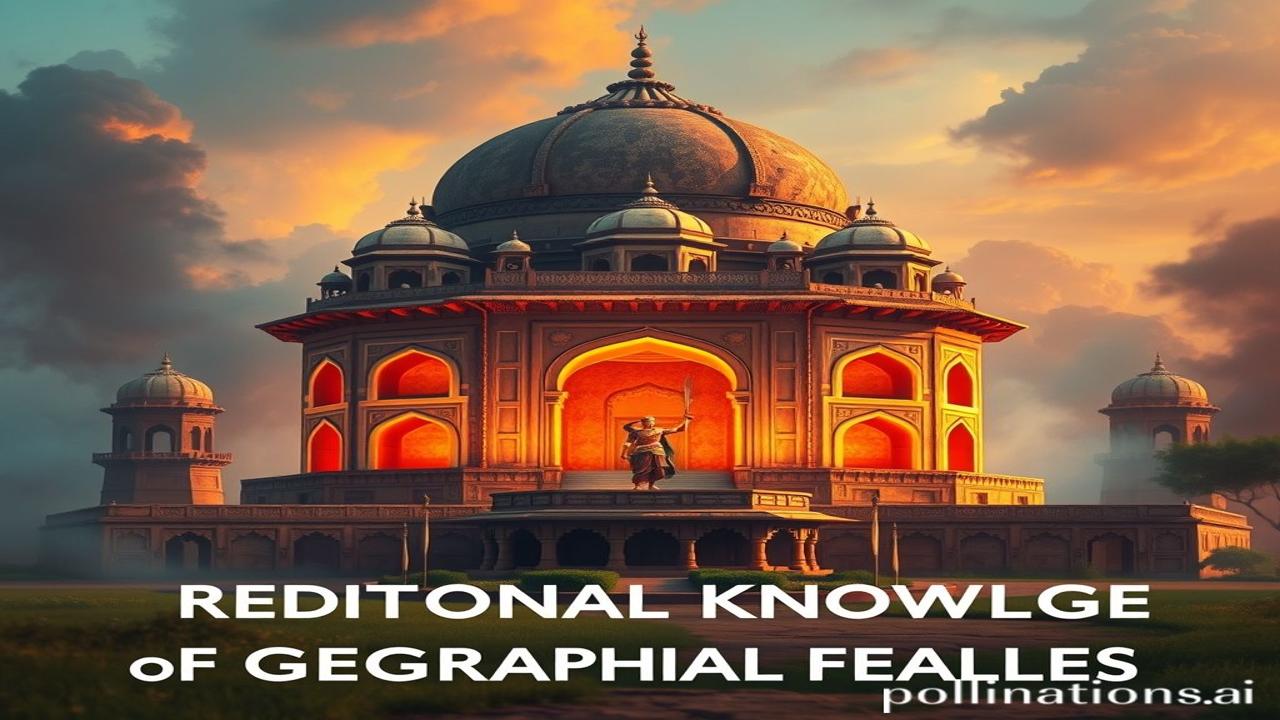Waqt Ki Dhool Mein Chhupi Wisdom: Traditional Knowledge Systems aur Modern Education
Kabhi socha hai, woh nani maa ke nuske, woh dada ji ki farming ki techniques, woh mandir ke pandit ji ke ancient texts – yeh sab kya the? Sirf purani baatein? Ya fir, ek treasure trove jo aaj bhi humari education system ko reshape kar sakta hai? Waqt ki dhool mein kuch kahaniyan chhup jaati hain, lekin unmein chupa hua gyaan, aaj bhi relevant hai. Let’s dive deep into the world of Traditional Knowledge Systems and how they can enrich modern education.
Itihasik Prishthbhumi: Kya Hai Yeh Traditional Knowledge Systems?
Traditional Knowledge Systems (TKS), simple shabdon mein, woh gyaan hai jo generations se pass on hota aaya hai, usually orally, within a community or culture. Yeh knowledge practices, beliefs, aur innovations ka ek comprehensive system hai jo logon ko unke environment aur life se deal karne mein madad karta hai. India mein, TKS ka ek lamba aur samriddh itihas hai, jo Vedic kaal se lekar aaj tak chala aa raha hai.
Kab aur Kahan?
TKS koi ek jagah ya ek samay ki baat nahin hai. Yeh toh Bharat ki har gali, har gaon, har parivar mein basa hua hai. Har region ki apni TKS hai – Ayurveda ki Kerala mein, Yoga ki Himalayas mein, Kalamkari ki Andhra Pradesh mein, aur tribal communities ki unki unique farming techniques.
Kyun Hai Yeh Important?
TKS sirf past ki baat nahi hai; yeh future ki bhi baat hai. Kyunki yeh sustainable practices, biodiversity conservation, aur community resilience ko promote karta hai. Aaj jab hum climate change, food security, aur cultural identity crises se jujh rahe hain, TKS solutions provide kar sakta hai jo humari zaroorat ke anusaar ho.
Zameeni Sach: Log aur Jeevan
Imagine karo, Ma Rukmini, ek tribal woman, jungle mein jaa rahi hai medicinal herbs dhoondhne. Unke haathon mein ek bamboo basket hai, aur unke dimag mein generations se mila hua gyaan hai ki kaun si patti kab aur kaise use karni hai. Woh jaanti hain ki kis root se malaria ka ilaaj hota hai, aur kis bark se skin infections door hote hain. Yeh gyaan, unke liye sirf knowledge nahi hai; yeh unki zindagi ka hissa hai, unki pehchaan hai.
Ya phir socho, ek potter, jo apne pita aur dada se mitti ke bartan banana seekha hai. Woh janta hai ki kaun si mitti sabse achi hai, kitna paani milana hai, aur kaise aag mein pakana hai. Woh sirf bartan nahi bana raha; woh apni family tradition ko zinda rakh raha hai, apni kala ko zinda rakh raha hai.
Rulers, artisans, saints, dancers, farmers, warriors – har kisi ne TKS ko contribute kiya hai, use kiya hai, aur pass on kiya hai.
Dharohar aur Pehchan: Aaj Ke India Mein
Aaj bhi, TKS humare aas paas zinda hai. Ayurveda, Yoga, Vastu Shastra – yeh sab TKS ke examples hain jo modern life mein integrate ho gaye hain. Humare festivals, rituals, art, architecture, aur bhashaon mein TKS ki jhalak dikhai deti hai.
Bharatiyata, ya Indianness, sirf history ya geography ki baat nahi hai. Yeh humare values, beliefs, aur practices ki baat hai, jo TKS se rooted hain. Jab hum TKS ko embrace karte hain, toh hum apni identity ko embrace karte hain.
Mazedar Tathya ya Bhram-Bhanjak
Myth: Traditional Knowledge is outdated and unscientific.
Reality: Many traditional practices have been scientifically validated. For example, the medicinal properties of turmeric (haldi) and neem have been proven by modern science. Furthermore, TKS often incorporates centuries of observation and experimentation, making it incredibly sophisticated and adaptable.
Fun Fact: Did you know that traditional Indian architecture, like Vastu Shastra, is based on scientific principles related to sunlight, ventilation, and energy flow?
Drishya aur Bhavnayein
Imagine a village scene in Rajasthan. The air is thick with the scent of spices and woodsmoke. The mud walls of the houses are painted with colorful geometric patterns. The sound of folk music echoes through the streets. The women are dressed in vibrant ghagra-cholis, their bangles tinkling as they draw water from the well. You can feel the warmth of the sun on your skin and the pulse of life in your veins. Yeh sab, TKS ka ek zinda, saans leta hua expression hai.
Antim Vichar ya Uddharan
“Vasudhaiva Kutumbakam” – The world is one family. TKS teaches us this interconnectedness, reminding us that we are all part of a larger whole. Let us honor and integrate this wisdom into our modern education system, creating a more holistic, sustainable, and culturally rooted future for generations to come.
“Gyanam Paramam Dhyeyam” – Knowledge is the ultimate goal.
